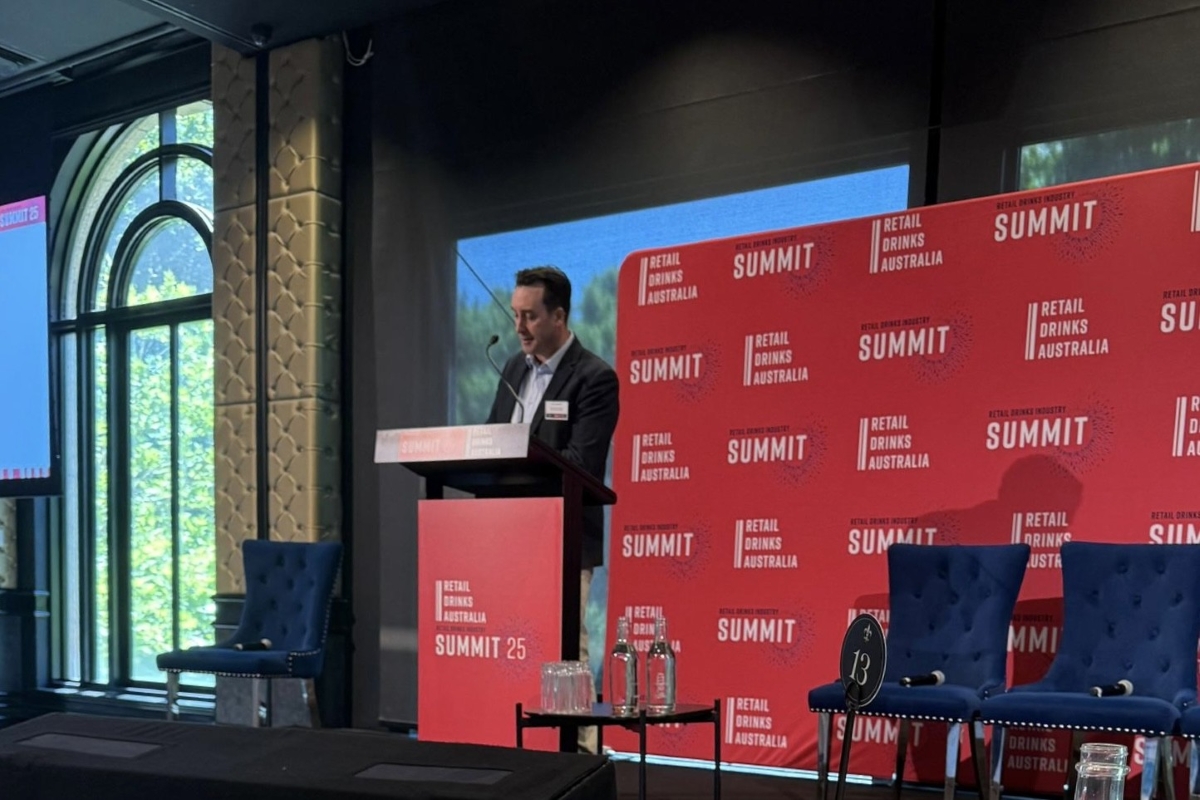Retail Drinks Australia held its annual Industry Summit on 11 November, which saw liquor retailers, banner groups, wholesalers and suppliers meet at Sydney’s Doltone House Hyde Park.
The Summit brought together experts and industry leaders who shared the latest trends, information and ideas to inform members’ future business decisions and growth strategies.
Retail Drinks Australia CEO Michael Waters opened the Summit providing an overview of the federal, state and territory regulatory landscape currently impacting liquor retail, emphasising the importance of a united and informed industry response.
“There’s a clear government agenda that is to some extent allowing emotion to cloud rational, collaborative decision making, and our efforts are being hindered by a broader industry that’s not completely aligned on this issue. Nevertheless, we will keep fighting to enhance your freedom to retail responsibly for your social license to operate, and the overwhelming majority of Australians that are increasingly making more informed and sensible choices about their drinking behaviour,” he said.
Waters also outlined Retail Drinks’ recent and planned policy and advocacy activities in each state and achievements from the past year that have helped to nurture a stable political, social and commercial environment in which liquor retail can continue to grow.
The achievements included abolishing minimum unit pricing in the Northern Territory, recognition of interstate digital driver licences as valid ID in New South Wales, Queensland and Western Australia and stronger laws for criminals and protections for retail workers across the country.
Speaking to the growing concerns surrounding retail crime and theft, Waters explained Retail Drinks’ efforts to protect retailers with the safe to serve initiative.
“ABS data shows that theft is at a 21 year high, with almost half of incidents occurring in retail settings. We also know that retail liquor crime is one of, if not the largest contributor, at times, representing around half of all retail crime statistics.
“Our safe to serve industry responsibility initiative was launched almost two years ago in direct response to industry’s growing concerns in relation to retail liquor crime, safety and security. [It] aims to help make retail liquor stores safe, secure and respectful environments. Since launching this initiative, resources like the toolkit and store assessment guide have been downloaded from our website over 15,000 times.”
Global issues and local challenges
A key session was a presentation from Rob Sherwin, Director of Policy for International Alliance for Responsible Drinking (IARD) who joined the summit via video call from London.
Sherwin provided an in-depth analysis of the 25 September 2025 United Nations High Level Meeting on Noncommunicable Diseases and how its findings will affect global alcohol monitoring and targets to reduce harm.
He also discussed industry achievements to date as it looks towards the IARD Roadmap to 2030 – the strategic plan to combat harmful drinking, by shaping global alcohol policies through research and industry collaboration and partnership.
Building on Sherwin’s insights a panel discussion on how the global policy environment is influencing Australia’s domestic retail landscape, followed.
Retail Drinks Australia’s Head of Policy & Advocacy, Kary Petersen facilitated the discussion and opened by addressing the current political environment.
“Over the past 12 to 18 months, the global alcohol policy environment is shifting rapidly, and Australia is not immune. But while that environment is challenging, it also presents an opportunity to get ahead of these trends, to learn from what’s happening globally and to work together to shape sensible, evidence-based regulation that protects responsible retailing,” he said.
Petersen was joined on stage by Gavin Saunders, CEO of Liquor Marketing Group; Dan Hamilton, Managing Director of Diageo; Jodi Dixon, Group Compliance Manager, Operations for Coles; and Sherwin.
They spoke about global trends in consumption, the rise of new regulations, such as restrictions on trading conditions, alcohol advertising, and product innovation, coupled with increasing taxes.
The panel reflected on how the industry is adapting and highlighted the need for evidence-based regulation, the high-cost burden on retailers, and the challenges of maintaining compliance across the country.
Across the whole summit and particularly in this discussion, the industry voices highlighted the importance of collaboration needed to protect the industry’s license to operate.

